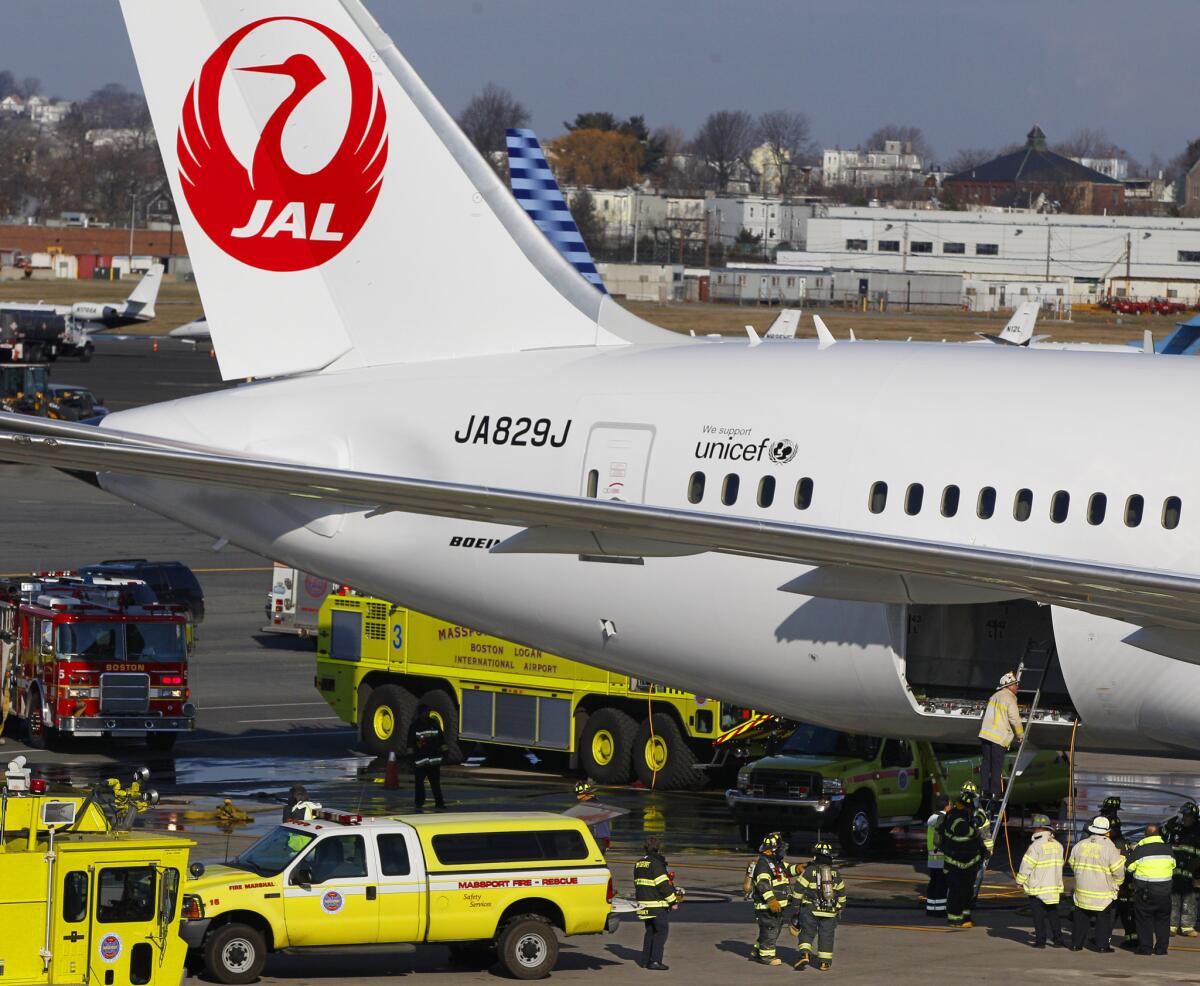NTSB urges rigorous testing after 787 Dreamliner battery fire probe

- Share via
A new report says federal regulators did not properly test lithium-ion batteries on Boeing Co.’s 787 jetliner, which were responsible for last year’s overheating incidents that grounded the planes around the world for more than three months.
On Thursday, the National Transportation Safety Board urged the Federal Aviation Administration to develop more rigorous testing for the batteries and seek advice from an independent panel the next time it encounters new technologies on commercial aircraft.
The NTSB’s 12-page safety recommendation letter said that processes used in 2006 to certify the batteries were “inadequate.”
Lithium-ion batteries, small and powerful, have become the electricity storage device of choice. They are everywhere -- in cellular phones, laptops, power tools, even cars. They allow us to talk, email and drill longer than ever possible in the past.
The Boeing 787 Dreamliner, however, is the first commercial jet to heavily rely on lithium-ion batteries to power important systems.
Lithium-ion batteries enabled Boeing to swap out heavy hydraulic systems in the airframe for lightweight electronics and electric motors to operate systems like wing de-icers. That’s a key reason that the Dreamliner burns 20% less fuel than other wide-body aircraft.
But they also have a tendency to occasionally burst into flames.
The 787 entered service for the first time in October 2011 for Japanese airline All Nippon Airways. Problems cropped up shortly afterward.
A battery fire broke out in January on a parked 787 operated by Japan Airlines at Boston’s Logan International Airport, and a second battery incident occurred less than two weeks later during an All Nippon Airways flight in Japan.
The FAA then grounded 787s in January 2013, and foreign government aviation agencies followed suit.
In its letter, the NTSB found that when the FAA was certifying the 787 for flight operation, it issued special conditions for lithium-ion battery installations because regulations didn’t cover the technology.
The NTSB provided five safety recommendations derived from its ongoing investigation of the fire at Logan Airport. Recommendations include guidance to develop a more advanced test to demonstrate safety performance and a reevaluation of short-circuit risk for lithium-ion batteries now in service.
To strengthen the aircraft certification process in the future, the NTSB recommended that the FAA consult experts outside the aviation industry to ensure “that both the FAA and the aircraft manufacturer have access to the most current research and information related to the developing technology.”
According to the letter, the NTSB wants to hear from the FAA within 90 days on what actions will be taken.
More to Read
Inside the business of entertainment
The Wide Shot brings you news, analysis and insights on everything from streaming wars to production — and what it all means for the future.
You may occasionally receive promotional content from the Los Angeles Times.











